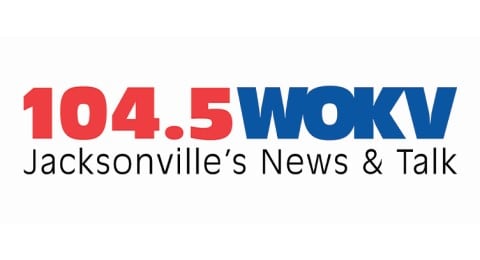It’s a more than just a game for Jacksonville- it’s an institution. And for the first time we’re seeing at what cost it comes.
Following the more than $700,000 loss of the Navy/Marine Corps Classic, the City of Jacksonville took a close look at how it accounted for some of the big ticket events it hosted- only to learn that such an accounting didn’t really exist, even for annual events like the Florida/Georgia Football Classic. That led to quick passage of a new law which required a full and concise record to come within 60 days of the event.
“We have put a little bit more scrutiny on how we account for these sporting events,” says Jacksonville’s Office of Economic Development Director of Operations Joshua Kelne.
Sixty days following Florida/Georgia, WOKV requested this accounting, but I was told that because the schools had yet to submit their invoices, money had not been withdrawn from the Sports and Entertainment Trust Fund so the timeline had not been triggered. I have continued to press for answers and have now obtained that accounting.
But it’s not as simple as just saying whether there’s a profit to be had here.
On paper, the 2013 Classic ended up $256,804.20. Jacksonville’s Office of Sports and Entertainment added what was budgeted for the game from various city sources ($772,871.69) with revenue from the game itself ($255,692.69), and from that subtracted expenses ($771,760.18) to get the total. In those sources of revenue, however, is nearly $530,000 of your tax dollars.
“Florida/Georgia Classic has always run a deficit, and that’s why about a half million dollars or so is coming out of the General Fund for the event,” says Councilman Matt Schellenberg.
Schellenberg led the committee which examined the financial loss of the Navy/Marine Corps Classic and designed the law on the books now. He says it’s improper to factor in the city’s contribution when determining the overall expense of the game
“It looks like we really didn’t make any money,” he says.
I’ve been working to find out how this game’s contribution compares to prior years, but that’s still unclear. The difference in the accounting now is having a concise idea of where money for each line on the event budget comes- whereas in prior years, money would just be taken from and deposited in to various sources and funds. That means that my request submitted to the City to know how much money has been taken from the General Fund in prior years isn’t as simple to find out as the line on the budget sheet I obtained.
Both Schellenberg and the Office of Sports and Entertainment believe the amount to be generally consistent, however, to the prior several years- at least the ones covered under the current contract between all involved parties to host the game in Jacksonville. That means that for at least several year, the City has been plugging some half-million tax dollars in to this game.
Whether you look at the game as an overall surplus, or in the red without the city’s tax dollar contribution, however- all parties agree that this goes well beyond the balance sheet.
“While we budget $500,000, we bring in close to $800,000 directly in taxes off the game and have a $32 million economic impact on the community,” says Sports and Entertainment Interim Director Joel Lamp.
He says there’s also a branding element that comes with keeping Jacksonville affiliated with such a high profile game. Lamp says they’ve also found areas year-over-year to create some savings and efficiencies. Additionally, the on-paper surplus of the game goes back in to the Special Events Trust Fund, which then funds other events around the city.
So while it appears that a significant amount of money has been contributed to the game for years, you won’t hear many complaints around City Hall.
“It’s a fabulous return on the money we put in,” Schellenberg says.
But that doesn’t mean that they’re resting on the status quo, either.
“As in any business, we should look at the expense side and say we can do better, and I think that’s what we should be doing,” Schellenberg says.
He says the most telling part of getting this balance sheet will come from comparing it to the data we obtain at the 2014 game to see if the contribution is, in fact, as stable as he believes.
It’s an effort that will be complicated, however, by the ongoing renovations at EverBank Field. WOKV told you in November that the agreement between the City and Jaguars to renovate the North End Zone of EverBank would come at a cost past the improvements themselves. Jacksonville is contractually obligated to have a certain number of seats for the Florida/Georgia game, and the City already spends $269,379 building additions. The ongoing renovations now include removing still more seats, meaning the bill to build temporary seating for this year’s Classic will climb.
Just how much more it will cost you is not yet clear. Lamp says they are currently soliciting bids for the project.
There is no desire- from politicians and fans alike- to see this game go anywhere anytime soon. The current contract keeping this long-running rivalry in Jacksonville lasts through and including the 2016 game.

:quality(70)/cloudfront-us-east-1.images.arcpublishing.com/cmg/NGLKTPKAE65AKIO2ZHXBWMHAHU.jpg)
:quality(70)/cloudfront-us-east-1.images.arcpublishing.com/cmg/HJ3L3HBBJBH6PB5ZFB3SVGFXSU.png)
:quality(70)/cloudfront-us-east-1.images.arcpublishing.com/cmg/4TQDXERT5VGORNZ4NQWXNO5H64.png)
:quality(70)/cloudfront-us-east-1.images.arcpublishing.com/cmg/SKX4RKW645ERTATCLA4V2FVRKQ.png)
:quality(70)/cloudfront-us-east-1.images.arcpublishing.com/cmg/TYVIYUNT7BBHDLGYYWGCJB424E.png)
:quality(70)/cloudfront-us-east-1.images.arcpublishing.com/cmg/WYUHBF3SFRC7HITANNA24VG6DI.jpg)
:quality(70)/cloudfront-us-east-1.images.arcpublishing.com/cmg/V7JDMMD6JJEEHIL6C7OSLV3ABU.png)
:quality(70)/cloudfront-us-east-1.images.arcpublishing.com/cmg/SJQSHSKLH4WOU244S34YXLICJQ.jpg)
:quality(70)/cloudfront-us-east-1.images.arcpublishing.com/cmg/VG3T3TEO2J6X4ZNCX3C64672HA.jpg)
:quality(70)/cloudfront-us-east-1.images.arcpublishing.com/cmg/JVJ55JKSPMDYWWEDH4KLMUBLXE.jpg)
